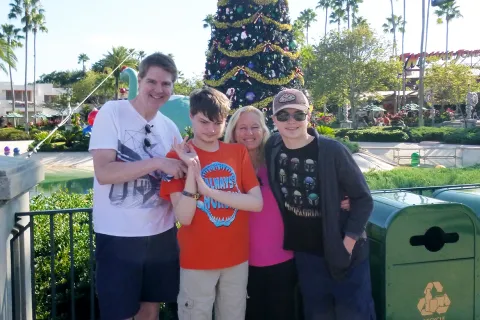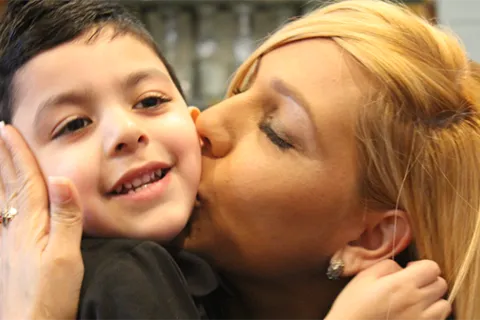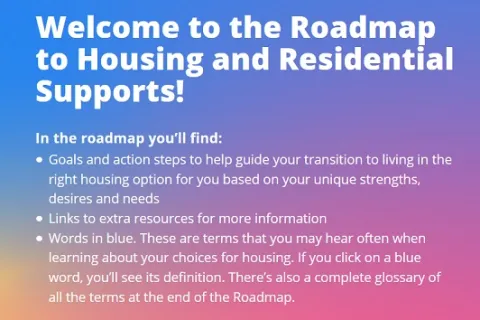Putting the Pieces Together: Options for Housing & Models for Residential Supports
Housing and Residential Supports Tool Kit
When planning for residential services and supports for an individual with autism, there are three aspects of housing that should be considered:
- The housing itself and the costs associated with it, whether owned or rented.
- Ongoing expenses such as utilities, water, heating, trash collection, cable, phone, etc.
- Specialized services and support.
Depending on the individual’s choices and preferences, all three aspects of housing can be combined, such as in the case of an agency‐operated group home, or a home purchased and arranged separately.
Housing Options
Generally speaking, housing options – sometimes referred to as “bricks and mortar” – are often the same as for any person looking for a place to live. These options include:
- A single family, stand‐alone home
- Duplex, townhouse, or condo
- Apartment
- Room rental in a home
In addition, as part of the planning process, a family will want to consider the best option for securing housing:
- Ownership
- Rental
- Lease
- Co‐op
Models for Residential Support
There are many different community-based residential service options. Some of these options combine housing and support services, while others allow the housing and support services to be purchased and arranged separately. As you read these descriptions, bear in mind that states may use different terms to describe similar models.
Services in the Community
- Supported Living offers services to individuals with disabilities who are able to live in a home or an apartment*. The services, typically minimal in nature, are based on the individual’s specific support needs and are provided by caregivers working under the direction of the individual. *As long as the supports are personalized, anyone can benefit from the supported living model, including those with the most significant support needs.
- Supervised Living (Semi‐Independent Living) offers more direct and intensive structured supports available 24 hours a day, if needed. The individual may live in a house or apartment, either alone or with others. Functional life skills such as banking, shopping, cooking and going to doctor appointments can be taught or supported by staff.
- Group Home Living has been the traditional model for residential services for individuals with developmental disabilities. In a group home, several unrelated people (all of whom have a disability) live together with onsite staff who are present 24 hours a day, 7 days a week. Instruction focuses on independent living skills and community activities. The house is owned and operated by a provider agency that also employs and supervises the staff.
- Group Living/Ownership (Co‐op) is similar to group home living, except that the house itself is owned by a group of families or individuals who have formed a cooperative agreement. Caregivers hired by the cooperative, and in some cases, by an agency contracted by the cooperative, provide support services.
- Teaching Family Model/Foster Home Living offers family‐style living with support services available 24/7 by professional teaching parents, usually a married couple. The individual may be the only person with a disability living in the home, or there maybe others with or without disabilities.
- Farmstead Communities provide residential supports and services for a number of individuals within the context of a working farm.
- Assisted Living Facilities/Intermediate Care Facilities (ICF) provide assistance with personal care and activities of daily living such as bathing, grooming, dressing, and more. In some states, ICF programs also provide medication assistance and/or reminders. Assisted living communities differ from nursing homes in that they don’t offer complex medical services. Click here for more information on Assisted Living.
Services in Institutional Settings:
- Nursing Homes can be used to provide housing and support services to those who are more medically fragile or aged.
- Developmental Centers are large residential facilities clustered on a campus‐like setting where residents have intensive needs related to their developmental disabilities. Most states no longer run large developmental centers. Some states that operate developmental centers are looking to shift people to more community‐based settings and will only place a person in a developmental center on an emergency basis.
A decision to pursue separate housing and support services means the individual and the family will also have to decide if they want to plan and coordinate services on their own, or with the help of an agency.








